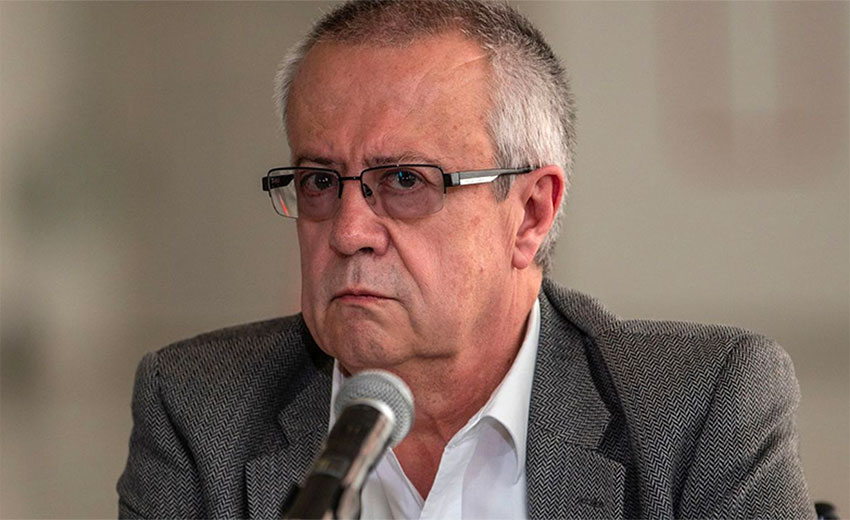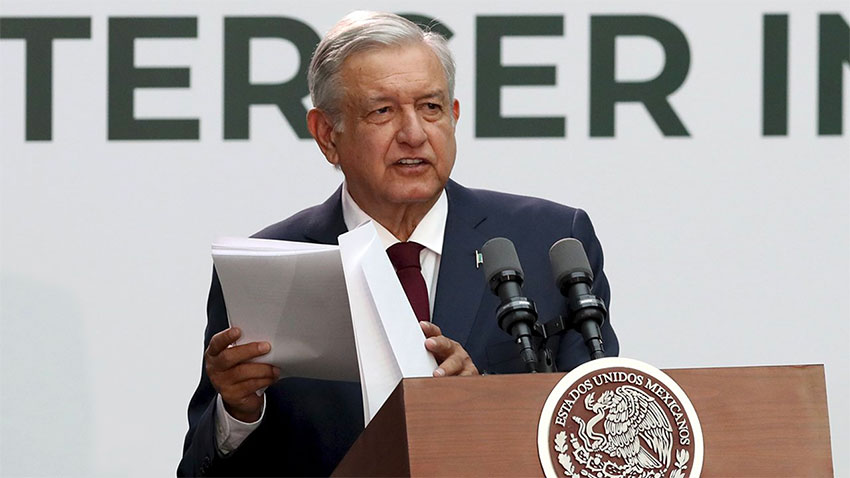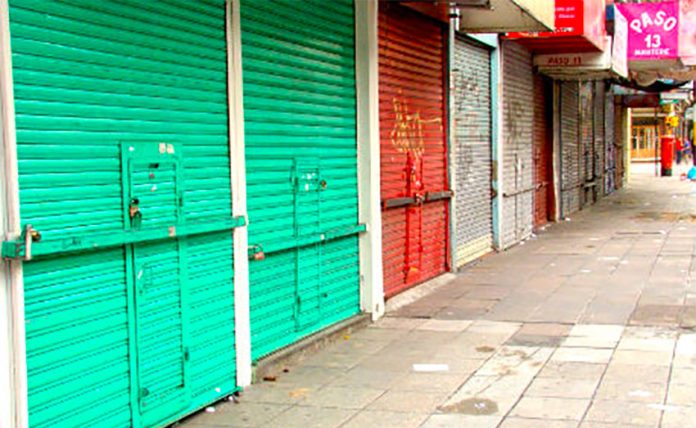The measures put in place to limit the spread of the coronavirus have cost the commercial, services and tourism sectors at least 669.1 billion pesos (US $30.9 billion) since March 17, estimates a leading business group.
And with scant financial support on offer from the federal government, the outlook for many businesses is also dire.
The loss estimate comes from the Confederation of Chambers of Commerce, Services and Tourism (Concanaco), whose president said that 90% of businesses have seen their income decline or disappear as a result of the Covid-19 pandemic and the economic restrictions that were implemented to stop its spread.
José Manuel López Campos said that a lot of businesses, especially micro, small and medium-sized ones, won’t be able to maintain their workforces or even reopen unless they receive greater financial support from the government.
“It’s predicted that the Covid-19 pandemic will leave more than one million people without formal employment,” he said.
While business leaders and financial analysts have advocated for the government to increase spending to support the economy, President López Obrador instead announced more austerity measures in April.
The government is pouring money into welfare, Pemex and large infrastructure projects such as the Maya Train and the new Mexico City airport but is only providing very limited support to business in the form of modest loans.
Even though public debt levels are low, López Obrador has steadfastly refused to take on more to support the economy, and has ruled out cutting taxes for companies or allowing them to defer their tax obligations.
Amid the coronavirus-induced economic crisis, the Bahamas is the only country in the Americas that has provided less fiscal stimulus for the economy as a percentage of GDP than Mexico.
According to the International Monetary Fund, the Mexican government’s fiscal support amounts to just 0.7% of GDP whereas the United States and Canada have provided stimulus to the tune of 12% and 9.8% of GDP, respectively.
Mexico’s fiscal support for the economy is also dwarfed by that provided in the Latin American countries to its south, from Honduras to Argentina and Brazil to Chile.

Valeria Moy, general director of the think tank México ¿cómo vamos?, said that even though López Obrador is refusing to take on additional public debt to increase stimulus measures, debt as a ratio of GDP will increase anyway due to the deep recession Mexico is predicted to suffer in 2020.
“The president will end up increasing this ratio more by not doing anything than by doing something,” she said. “If we don’t do anything in terms of fiscal support, … GDP will fall a lot and by falling a lot the [debt to GDP] ratio will increase.”
Carlos Urzúa, López Obrador’s former finance minister — who resigned last July citing “plentiful” discrepancies over economic matters, believes that the government is making a big mistake by not providing more support for business.
“The government should help the private sector as much as it can, otherwise our gross domestic product could drop as much as 10%, which would be a disaster,” he said.
“It can be done,” Urzúa said, citing the relatively low public debt levels. He charged that López Obrador is oblivious to the economic damage the coronavirus crisis will cause, asserting that the president “really has no clue about the storm that is coming.”
“Every day counts,” said Santiago Levy, an economist and former deputy finance minister. “A recession was inevitable, but the cost of not doing more is going to be a much longer and deeper recession.”
Business groups have repeatedly called on the government to change its economic response to the crisis, charging that its softly-softly approach will end up doing more harm than good.
“The country must take on greater public debt to reactivate the economy. … We all believe that we should take on debt in a responsible way,” Carlos Salazar, president of the Business Coordinating Council, said last month.
López Obrador characterized his remarks as a request for the government to bail out large companies struggling to weather the coronavirus storm.
“We’re not going to continue with more of the same. If a company goes bankrupt, the owner should assume responsibility, or the partners or shareholders, because the state has to protect everyone; it would be immoral to use the state to bail out companies or financial institutions that are bankrupt,” he said.
His obstinacy in the face of calls to change the government’s economic tack has been a hallmark of his conduct during the coronavirus pandemic.
The New York Times reported on Monday that business leaders sat down with López Obrador for the second time in a month in April to urge him to do more to support the economy.

The federal government had only declared a health emergency on March 30 and consequently suspended all nonessential economic activities but tens of thousands of jobs had already been lost and businesses were running out of cash, the business leaders told the president, citing “irrefutable” data.
In response, according to two businesspeople who spoke to the Times, López Obrador uttered one of his most oft-repeated phrases: “I have other information.”
“You do whatever you think you need to do, and I’ll do what I need to do,” the president told the meeting, according to the businesspeople with direct knowledge of the conversation.
While business leaders, analysts and opposition lawmakers have called for greater fiscal support and charged that Mexico has the capacity to take on more debt, Economy Minister Graciela Márquez takes a different view.
She said the cost would be prohibitive so taking on more debt would be more problematic than beneficial in the long run. Nevertheless, the government has not completely ruled out the possibility, Márquez said.
“If at a certain point we need to raise more debt, we will. It’s not a closed-off road,” she said.
Yet-to-be-released economic data could provide the government with the impetus to pump more public money into the economy.
Data published by the national statistics agency Inegi at the end of April showed that the economy shrank 2.4% in the first quarter of the year, the worst quarterly contraction since 2009 but nevertheless better than anticipated.
However, the federal government’s social distancing initiative didn’t start until March 23 and nonessential businesses were allowed to remain open until the end of that month, meaning that the main economic impact of the pandemic will not be reflected in official data until second-quarter figures are released.
A double-digit contraction in the second quarter, as some analysts and financial institutions are predicting, could provide López Obrador and his administration with what government critics would likely describe as a much-needed wake-up call.
Source: El Financiero (sp), The New York Times (en)
